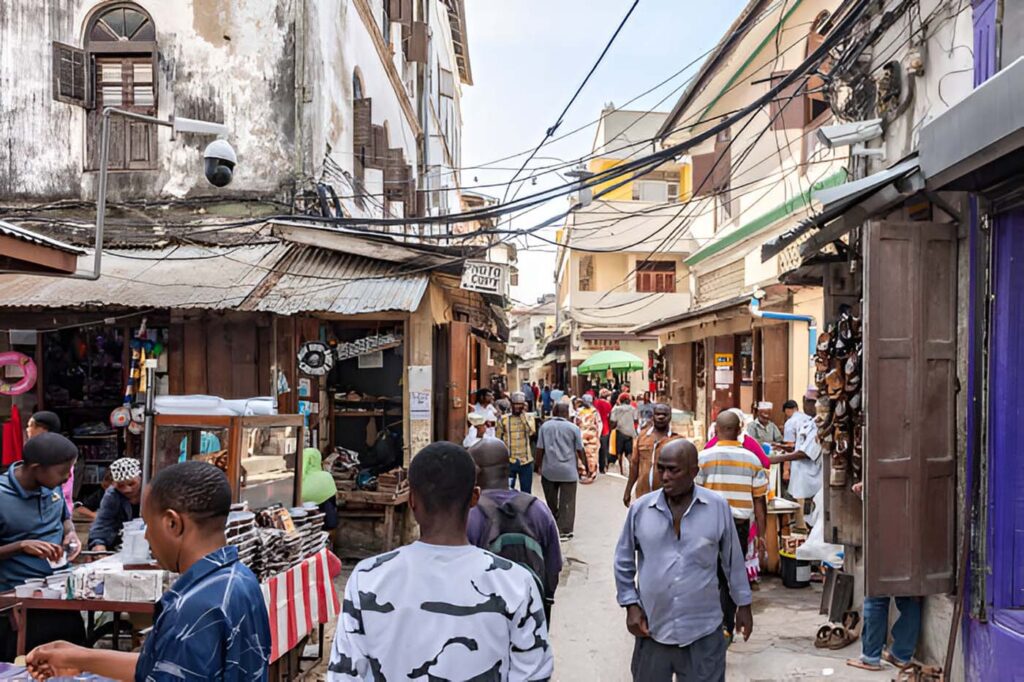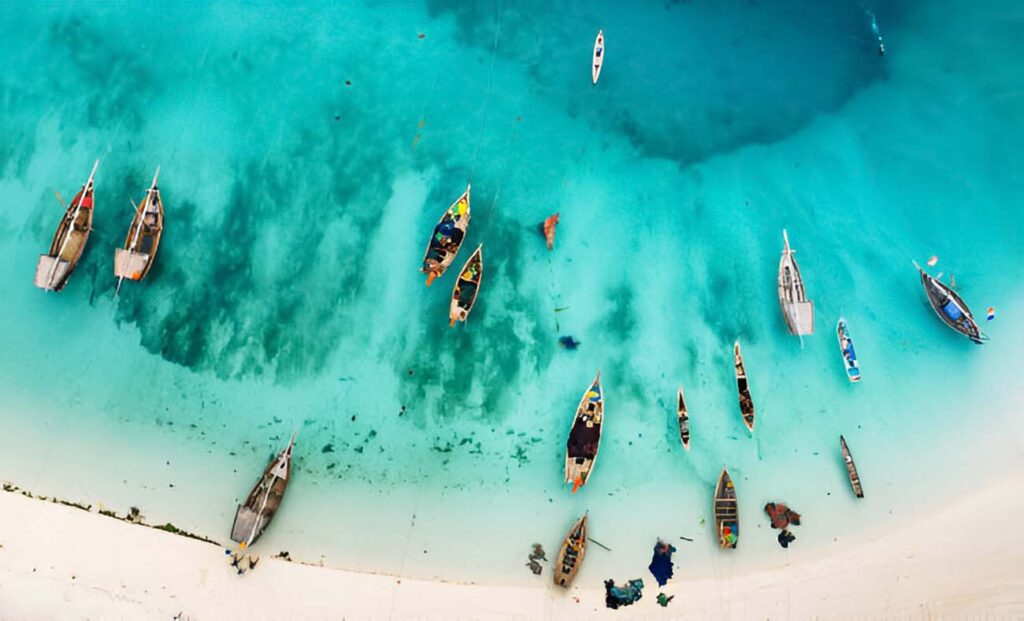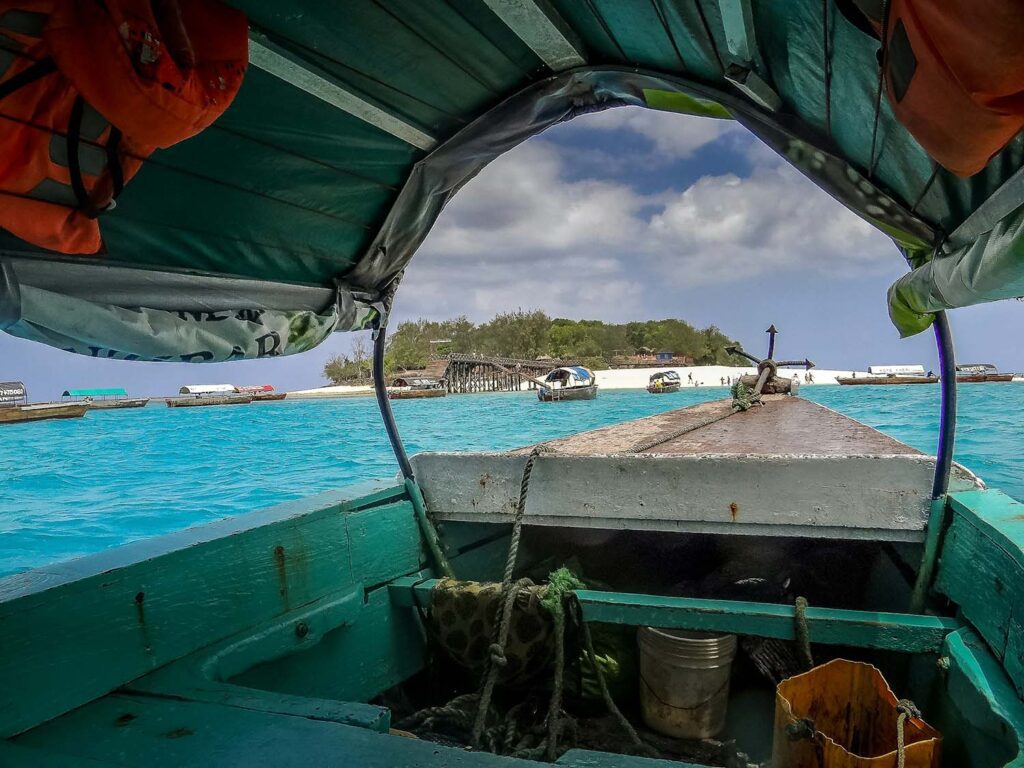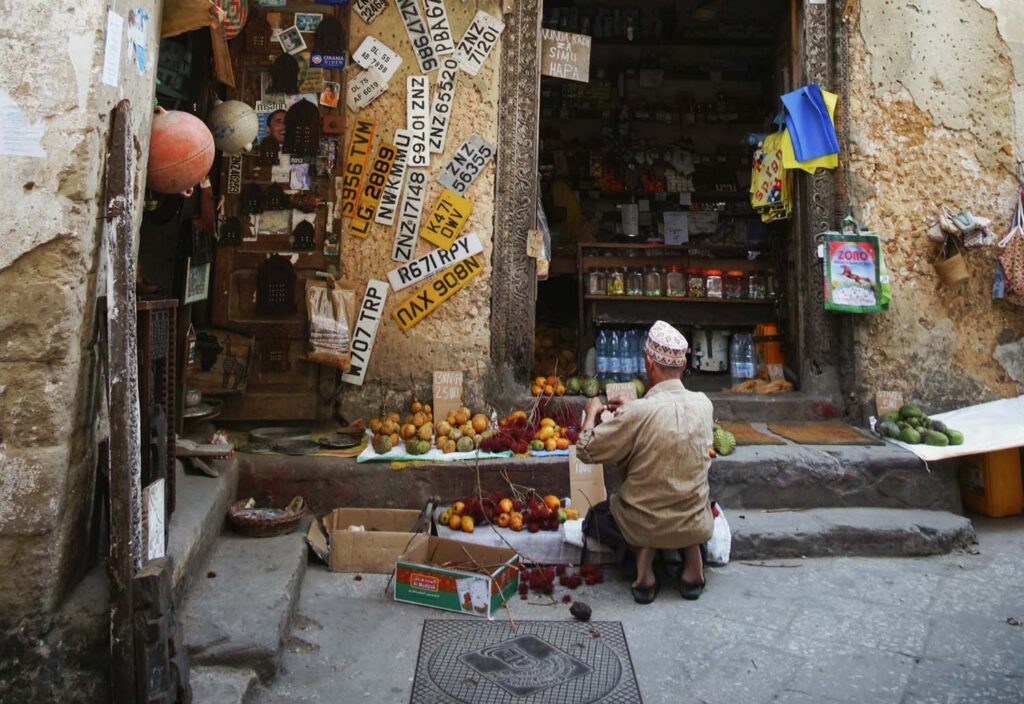At 6 AM sharp, the Darajani Market comes alive with the sounds of Kiswahili negotiations and the rich aromas of cardamom, cinnamon, and cloves. Vendors arrange pyramids of spices that have drawn traders to these shores for over a millennium, while tourists won’t appear for another three hours. The prices here (real wholesale rates for the spices that built Zanzibar’s economy) reflect the island’s authentic value proposition, far removed from the inflated “spice island experience” packages sold online.
This daily ritual illustrates why timing matters so much for Zanzibar holiday deals. The island operates on multiple economic layers: the local Swahili community maintaining traditional livelihoods, the tourism industry serving international visitors, and the complex interaction between both. Understanding these rhythms helps you navigate booking platforms more effectively than any promotional discount code.
For comprehensive island planning beyond deals and discounts, check out our Ultimate Zanzibar Holiday Guide covering cultural experiences and authentic local insights.
Key Takeaways
- Platform Reality: Agoda for genuine flash sales, Booking.com for luxury with perks, Expedia for packages. Direct booking often beats all platforms.
- Cultural Timing: May to June shoulder season offers 30% savings while respecting local agricultural cycles and avoiding peak crowding
- Hidden Cost Truth: Budget $94 to $144 in government fees (eVisa plus insurance) that no booking platform includes in advertised rates
- Regional Value: East coast villages provide authentic experiences at better prices than north coast resort concentrations
- Weather Economics: Peak season (June to October) charges 40% to 60% premiums for guaranteed sunshine and full facility operations
Understanding Zanzibar’s Tourism Economics Beyond Marketing
The Cultural Foundation Missing from Booking Sites
Zanzibar’s appeal extends far beyond pristine beaches into a complex cultural heritage shaped by Arab, Persian, Indian, and African influences over centuries. This UNESCO World Heritage destination offers sophisticated experiences that booking platforms often reduce to generic “tropical paradise” marketing.

The island’s economy balances traditional industries (fishing, agriculture, spice cultivation) with modern tourism infrastructure. This creates pricing dynamics that vary dramatically based on seasonal demand, local economic cycles, and the level of cultural integration visitors seek.
Most international booking platforms focus exclusively on resort-style accommodations while overlooking locally owned guesthouses, family-run restaurants, and community-based tourism initiatives that provide better value and authentic cultural connections.
Common Misconceptions About Zanzibar Costs
The narrative of “cheap African beach holidays” oversimplifies Zanzibar’s sophisticated destination profile. Quality accommodations, authentic cultural experiences, and responsible tourism investments require appropriate financial investment.
Zanzibar operates two distinct pricing structures: local rates for residents and tourist rates for visitors. Understanding this system helps explain why some services seem expensive compared to other African destinations while others offer exceptional value.
The difference lies in recognizing where your money creates genuine value versus inflated tourist markup. Local markets, community-owned accommodations, and traditional transportation offer authentic experiences at fair prices.
Platform-by-Platform Analysis: Where Real Deals Exist
Booking.com: Luxury Properties with Verified Standards
Strengths: Extensive high-end inventory, detailed property photos, comprehensive review systems
Value Proposition: Genius program provides genuine perks like complimentary breakfast, room upgrades, and late checkout
Booking.com excels at mid to luxury properties, particularly those blending international standards with local character. Properties like Stone Town boutique hotels converted from historic mansions offer unique experiences unavailable through other platforms.

The Genius loyalty program delivers measurable value in Zanzibar. Free breakfast at a $200/night property saves $25 to $40 daily. Room upgrades to ocean-view suites provide experiences worth $100+ per night.
Strategic Approach: Use Booking.com for research and luxury bookings, then contact properties directly to request rate matching with added local experiences.
Expedia: Package Efficiency with Customer Support
Strengths: Flight plus hotel bundles, established customer service, flexible payment options
Value Proposition: Integrated travel planning with real savings on combined bookings
Expedia’s package deals often provide genuine savings over separate flight and hotel bookings. A typical Europe to Zanzibar package saves $200 to $400 per person compared to individual bookings.
Their rewards program integrates with airline loyalty schemes, providing additional value for frequent travelers. The established customer service infrastructure helps resolve issues that smaller platforms struggle with.
Strategic Approach: Compare Expedia packages against separate bookings, factoring in included transfers and activities that add hidden value.
TripAdvisor: Research Integration with Booking Options
Strengths: Comprehensive review database, price comparison across platforms, local activity recommendations Value Proposition: Research and booking integration saves time while providing traveler insights
TripAdvisor’s evolution from review site to booking platform creates unique value through informed decision-making. You can read detailed traveler experiences while comparing prices across multiple platforms simultaneously.
Their local activity recommendations often highlight authentic experiences overlooked by other booking sites, particularly cultural tours and community-based tourism options.
Strategic Approach: Use TripAdvisor for thorough research, then book through the platform offering the best combination of price and terms.
Agoda: Flash Sales with Local Property Networks
Strengths: Genuine flash sales, relationships with smaller properties, mobile app exclusive deals
Value Proposition: Significant discounts for flexible travelers
Agoda’s flash sales represent actual price reductions, not inflated baseline marketing. Properties drop 25% to 40% below standard rates, though availability requires timing and flexibility.
Their network includes locally-owned guesthouses and family-run properties often missing from larger platforms. These accommodations provide authentic cultural connections at competitive prices.
Strategic Approach: Set price alerts for target properties and book quickly when flash sales appear, typically Tuesday through Wednesday.
Trip.com: Package Optimization for Asian and European Markets
Strengths: Competitive package pricing, regional flight connections, group booking options
Value Proposition: Optimized routing and pricing for specific geographic markets
Trip.com excels at creating efficient travel packages for travelers from Asia and Europe. Their flight routing algorithms often find connections that save both time and money compared to other platforms.
Group booking discounts provide additional savings for family or friend travel, with rates improving significantly for four or more travelers.
Strategic Approach: Compare Trip.com packages for international travel, especially from Asian cities with direct or efficient connections to Zanzibar.

Seasonal Strategy: When Cultural Awareness Meets Economic Opportunity
Zanzibar’s Natural Rhythm and Tourism Patterns
| Season | Weather | Cultural Events | Accommodation Rates | Best Activities |
|---|---|---|---|---|
| Dec-Feb | Hot, dry | Eid celebrations | Peak pricing (+50%) | Beach, diving, cultural tours |
| Mar-May | Rainy season | Spice harvest | Lowest rates (-40%) | Stone Town exploration, cooking classes |
| Jun-Aug | Cool, dry | Clove harvest | High season (+30%) | All activities optimal |
| Sep-Nov | Warming up | Traditional festivals | Shoulder rates (-20%) | Perfect weather returns |
Understanding the May to June Sweet Spot
The months of May and June offer exceptional value for culturally aware travelers. While international tourism markets these months as “low season” due to occasional rain, local agricultural and cultural calendars create unique opportunities.
May marks the end of the main rainy season, when the island’s vegetation reaches peak lushness and local agricultural activity intensifies. Spice farms offer harvest participation experiences unavailable during dry months.
Accommodation rates drop 25% to 35% compared to peak season, while weather patterns typically include clear mornings perfect for cultural exploration and brief afternoon showers that provide natural air conditioning.
Restaurant and activity prices remain at local levels rather than peak season tourist rates, providing authentic pricing for cultural experiences like cooking classes, traditional craft workshops, and community-based tourism.
Peak Season Reality: December to February
Peak season pricing reflects guaranteed weather and full operational capacity across all tourism infrastructure. Hotels, restaurants, and activity providers charge premium rates based on high demand and limited availability.
However, peak season also brings crowd-related challenges that affect cultural authenticity. Stone Town’s narrow streets become congested, popular beaches lose their tranquil atmosphere, and local communities adjust their rhythms around tourist density.
Cultural experiences like spice tours and traditional craft demonstrations become more commercialized during peak periods, with larger group sizes and less personal interaction with local artisans.
The weather guarantee comes with environmental trade-offs: increased waste production, higher water usage, and greater pressure on local infrastructure systems.
Regional Value Analysis: Where Your Money Goes Furthest
Stone Town: Cultural Immersion with Historic Value
Accommodation Range: $60 to $400 per night Cultural Advantage: Walking distance to UNESCO heritage sites, traditional markets, and authentic local dining
Stone Town accommodations range from converted historic mansions to modern boutique hotels. Mid-range properties ($120 to $200) often include architectural features and cultural touches that luxury beach resorts cannot replicate.
The area’s compact geography eliminates transportation costs while providing authentic cultural immersion. Traditional coffee houses, local markets, and artisan workshops operate within walking distance of most accommodations.
Evening cultural programs at venues like the Old Fort provide entertainment costs significantly below beach resort offerings while supporting local cultural preservation initiatives.
East Coast Villages: Authentic Experiences at Fair Prices
Accommodation Range: $40 to $180 per night Cultural Advantage: Integration with fishing communities, traditional craft production, and sustainable tourism initiatives
Villages like Jambiani, Bwejuu, and Paje maintain traditional economic activities alongside small-scale tourism. Community-owned guesthouses provide authentic cultural connections while ensuring tourism revenue supports local families directly.
Seaweed farming, traditional fishing, and dhow construction continue as primary economic activities, offering visitors genuine insight into contemporary Swahili coastal life rather than staged cultural performances.
Local restaurants serve traditional dishes at authentic prices ($8 to $15 per meal) compared to resort dining ($25 to $45 per meal) while supporting family businesses rather than international hotel chains.
For detailed area breakdowns and specific accommodation recommendations, explore our complete guide to where to stay in Zanzibar.

North Coast: Resort Infrastructure with Premium Pricing
Accommodation Range: $100 to $800 per night Tourism Model: International resort standards with limited local community integration
Nungwi and Kendwa beaches offer classic tropical resort experiences with guaranteed amenities and international service standards. All-inclusive packages can provide value for travelers preferring predictable costs over cultural exploration.
However, the resort concentration creates artificial pricing for all services in the area. Simple meals cost resort prices even at independent restaurants, and cultural activities become commercialized experiences rather than authentic community interactions.
Transportation to other parts of the island from north coast resorts requires private arrangements, limiting spontaneous cultural exploration and increasing overall trip costs.
Budget Planning: Real Costs for Responsible Travel
Essential Government Fees and Requirements
eVisa Application: $50 for most nationalities, $100 for US citizens (must be obtained online before travel) Zanzibar Insurance Corporation: $44 mandatory coverage (separate from personal travel insurance) Airport Transportation: $25 to $50 depending on destination and transport choice
These mandatory costs total $119 to $194 before any accommodation or activity expenses. International booking platforms rarely include these fees in advertised prices, creating misleading cost expectations.
Daily Budget Categories by Travel Approach
Cultural Immersion Budget ($80 to $140 per day):
- Community guesthouse: $60 to $90
- Local restaurants and markets: $20 to $30
- Public transport and walking: $5 to $10
- Cultural experiences and guides: $15 to $25
Balanced Experience ($160 to $280 per day):
- Boutique hotel with character: $120 to $180
- Mix of local and international dining: $35 to $55
- Private transport for cultural sites: $25 to $40
- Organized cultural activities: $20 to $35
Luxury with Purpose ($350 to $650 per day):
- High-end resort or historic property: $250 to $450
- Premium dining experiences: $60 to $120
- Private guides and exclusive access: $50 to $100
- Spa and recreational activities: $40 to $80
Transportation Economics Within Zanzibar
Local dala-dala (shared minibus) routes connect all major areas for $1 to $2 but require local language skills and cultural awareness for effective use. Bajaj (three-wheel taxis) cost $8 to $15 for short trips with price negotiation expected.
Private car rental averages $45 to $65 daily but proves unnecessary for most itineraries given the island’s compact size and good road conditions. Motorcycle rental ($15 to $25 daily) provides flexibility for confident riders familiar with local traffic patterns.
Organized tour transport includes cultural context and safety considerations that individual transport cannot provide, justifying higher costs ($25 to $50 daily) for meaningful cultural experiences.

boat ride in zanzibar
Advanced Booking Strategies Beyond Platform Comparison
Direct Property Communication Advantages
Many quality accommodations offer exclusive arrangements for direct bookings that international platforms cannot match. Email contact after platform research often yields rate matching plus added value like airport transfers, welcome meals, or cultural activity inclusion.
Community-owned properties frequently lack sophisticated online booking systems but provide exceptional value and authentic experiences through direct communication via WhatsApp or local tourism office coordination.
Historic Stone Town properties often include architectural tours, traditional meal preparation, or artisan workshop access that commercial booking platforms cannot organize or price appropriately.
Timing Platform Promotions Strategically
Agoda Flash Sales: Tuesday and Wednesday afternoon releases target last-minute bookings Booking.com Genius Promotions: Quarterly sales coincide with shoulder season periods
Expedia Package Deals: Month-end clearing provides best bundle pricing
Set specific price alerts for target properties rather than generic area searches. Property-specific monitoring captures flash sales and limited-time promotions that broad searches miss.
Local Network Integration
Community tourism offices in Stone Town and major villages maintain lists of family-run accommodations and cultural experience providers not listed on international platforms. These connections often provide 20% to 30% savings compared to online rates while ensuring tourism revenue supports local communities directly.
WhatsApp groups for current Zanzibar travelers share real-time information about authentic local experiences, transportation options, and accommodation recommendations from residents rather than commercial tourism operators.
Cultural Considerations for Respectful Budget Planning
Understanding Local Economic Impact
Tourism revenue distribution varies dramatically based on accommodation and activity choices. International hotel chains retain most revenue in offshore accounts, while locally-owned properties circulate money within Zanzibar’s economy through local employment and supply purchases.
Community-based tourism initiatives ensure cultural experiences benefit the families and communities providing them rather than external tour operators who package and resell local knowledge.
Traditional craft workshops, cooking classes with local families, and guided cultural tours by community members provide fair compensation for cultural sharing while offering authentic experiences unavailable through commercial tourism packages.
Seasonal Sensitivity to Local Community Rhythms
Ramadan observance significantly affects restaurant hours, alcohol availability, and general business operations. Travelers during this period should budget for limited dining options during daylight hours while experiencing unique evening cultural celebrations.

Agricultural seasons influence spice farm tours, traditional craft production, and fishing community activities. Timing visits to align with natural cycles provides more authentic experiences while supporting traditional economic activities.
Local festival periods offer exceptional cultural immersion opportunities but require advance planning as accommodation availability decreases and community attention focuses on traditional celebrations rather than tourism services.
Quick Reference: Zanzibar Planning Essentials
Entry Requirements (Updated 2025)
- eVisa: Online application required before travel ($50 standard, $100 US citizens)
- Zanzibar Insurance: $44 mandatory from Zanzibar Insurance Corporation
- Passport: Minimum 6 months validity, 2 blank pages for entry stamps
- Health: Yellow fever certificate required if arriving from endemic areas
Optimal Booking Timeline
- Peak Season (Dec-Feb): Book 3 to 4 months ahead for choice properties
- Shoulder Season (May-Jun, Oct-Nov): Book 6 to 8 weeks ahead for best deals
- Flash Sales: Monitor Tuesday/Wednesday for same-week and next-week deals
- Direct Booking: Contact after platform comparison for rate matching and perks
Regional Budget Guidelines
- Stone Town: $60 to $400/night, cultural experiences included in location
- East Coast Villages: $40 to $180/night, authentic community connections
- North Coast Resorts: $100 to $800/night, premium pricing for all services
- Transport: Budget $15 to $25 daily for comfortable local transport options
Cultural Notes
- Language: Kiswahili primary, English widely spoken in tourism areas
- Religion: Predominantly Muslim, modest dress expected outside resort areas
- Currency: Tanzanian Shilling (TZS), US dollars accepted at tourist businesses
- Tipping: 10% restaurants, $5-10 daily for guides, small amounts appreciated for helpful local assistance
Planning a family adventure? Review our Zanzibar family travel guide for kid-friendly activities and safety considerations. Solo travelers should explore our solo Zanzibar guide for community connections and cultural etiquette.
Platform Comparison Summary
| Platform | Best For | Average Savings | Cultural Integration | Booking Experience |
|---|---|---|---|---|
| Booking.com | Luxury verification | 15-25% with Genius | Medium (international focus) | Excellent |
| Expedia | Package efficiency | 20-30% on bundles | Medium (mainstream tourism) | Very Good |
| TripAdvisor | Research integration | Varies by partner | Medium (review-based insights) | Good |
| Agoda | Flash sale opportunities | 25-40% on promotions | High (local property network) | Good |
| Agoda | Asian/European routing | 20-30% on packages | Medium (efficient logistics) | Good |
| Direct Booking | Authentic experiences | Rate matching + perks | Highest (community connections) | Variable |

Finding Value That Respects Zanzibar’s Cultural Heritage
The best Zanzibar holiday deals extend beyond simple price comparison to encompass cultural respect, community benefit, and authentic experience value. International booking platforms provide convenient access and verified standards, but the most meaningful travel experiences often emerge through direct community connections and local knowledge.
Sustainable tourism in Zanzibar requires balancing personal budget constraints with fair compensation for local communities sharing their cultural heritage. The lowest advertised rates rarely include the full cost of respectful, responsible travel that supports rather than exploits local traditions.
Consider your accommodation and activity choices as investments in Zanzibar’s cultural preservation and economic development rather than simple consumer transactions. Properties and experiences that provide fair employment, cultural education, and community benefit offer superior long-term value despite potentially higher upfront costs.
Back at Darajani Market, the spice vendors understand that quality requires appropriate investment. The tourists who negotiate aggressively for the lowest possible prices often receive lower quality products, while those who pay fair rates build relationships that enhance their entire Zanzibar experience through recommendations, cultural insights, and genuine hospitality.
Ready to plan your authentic Zanzibar experience? Use our comprehensive planning tool to balance budget constraints with cultural respect, or explore our transportation guide for sustainable travel options that support local communities.



